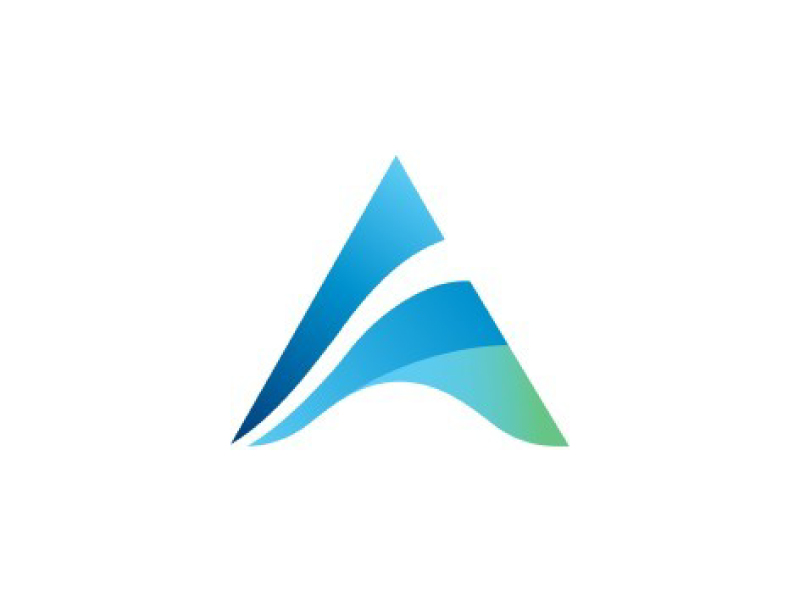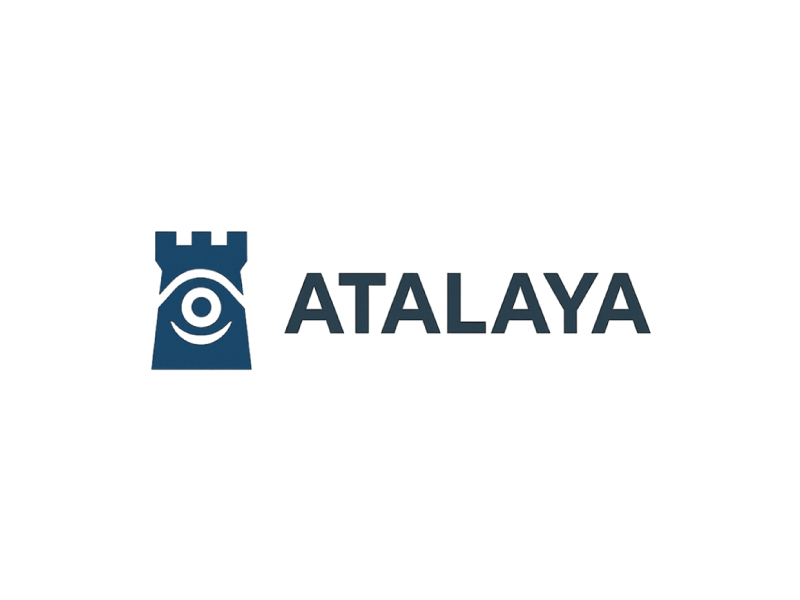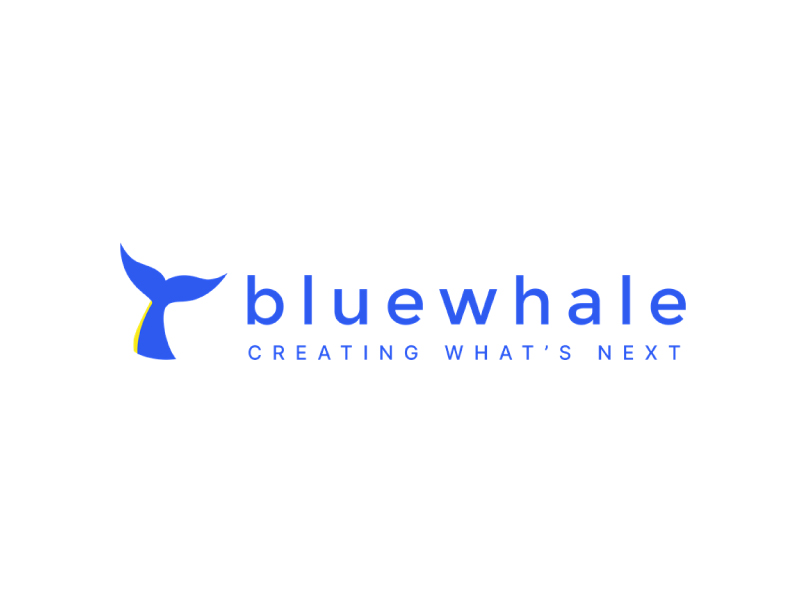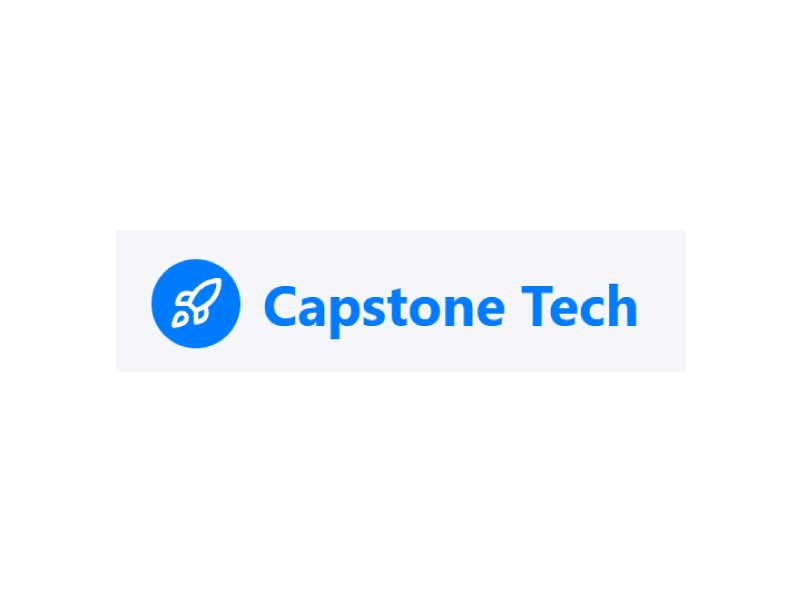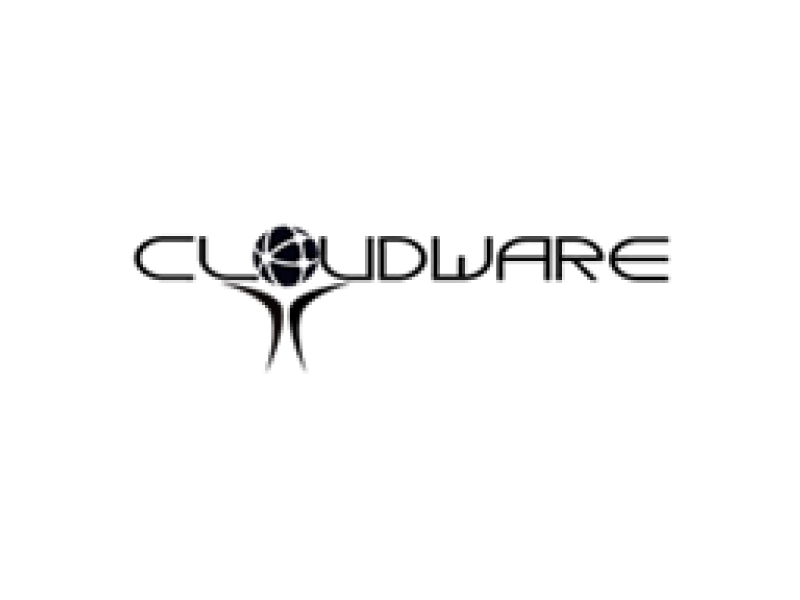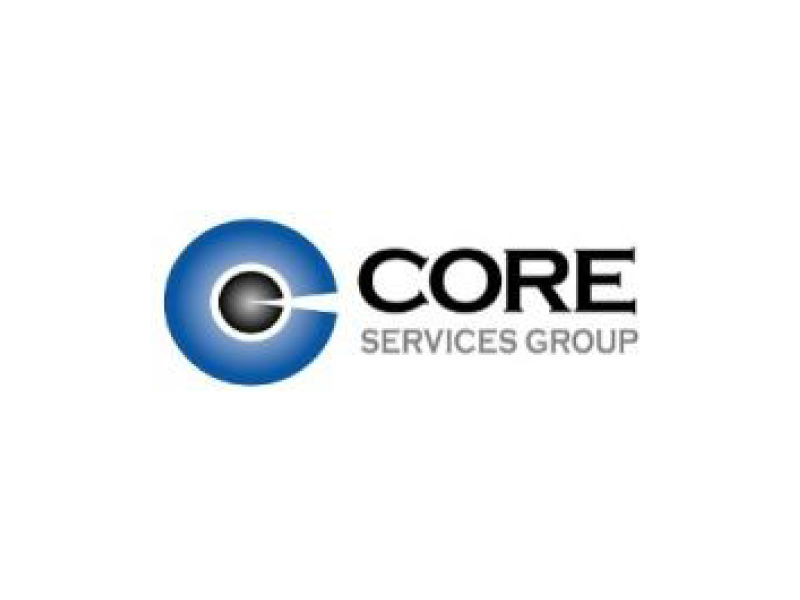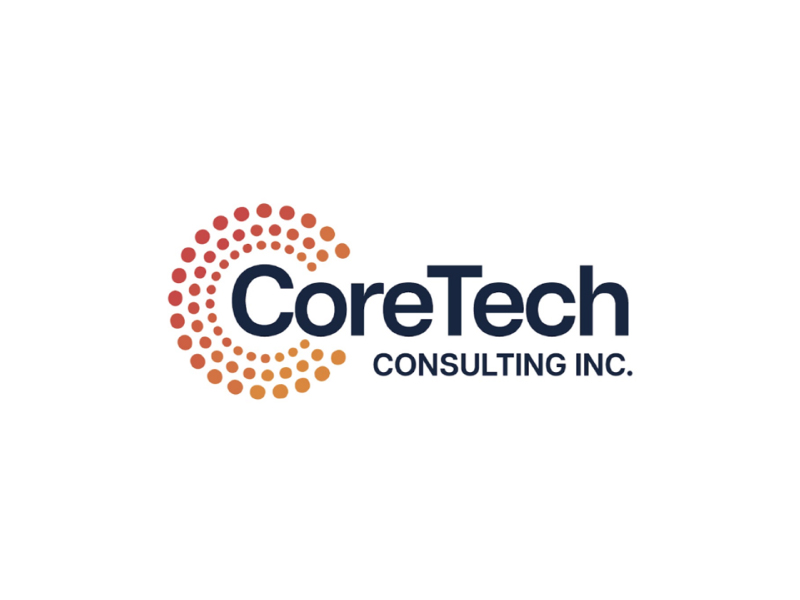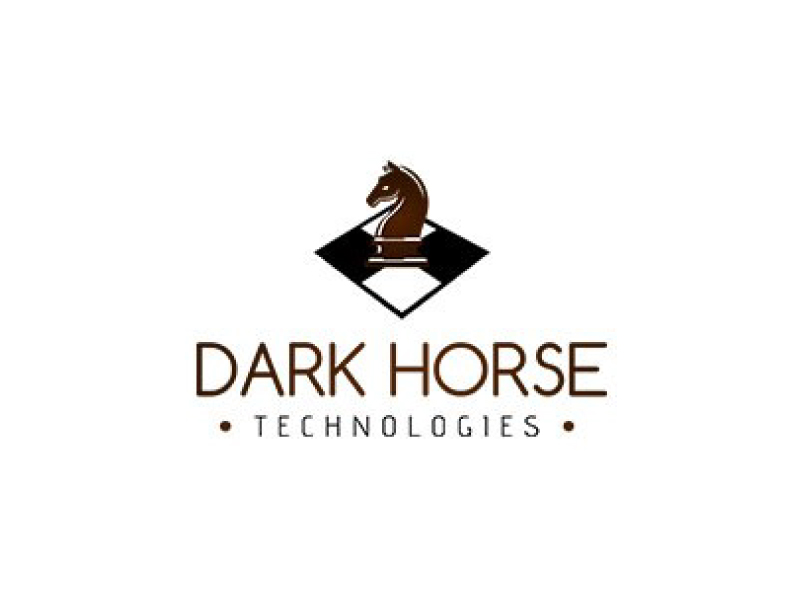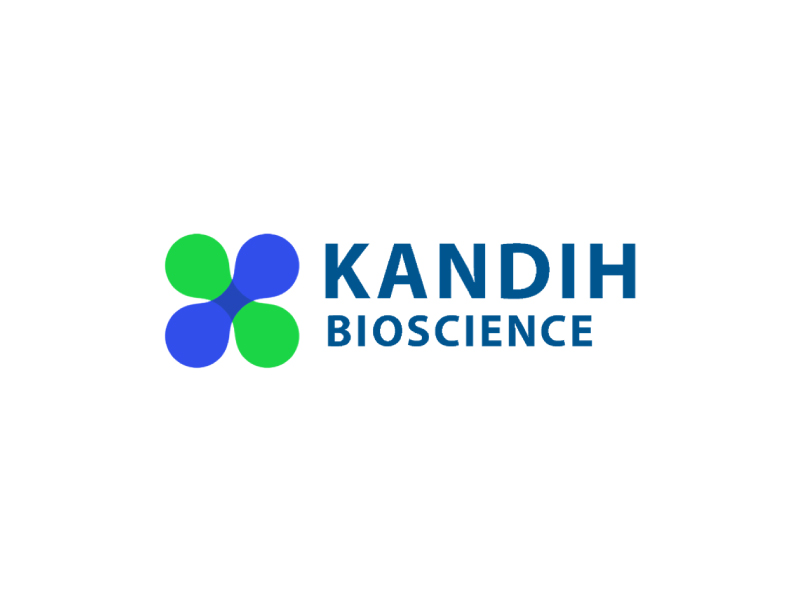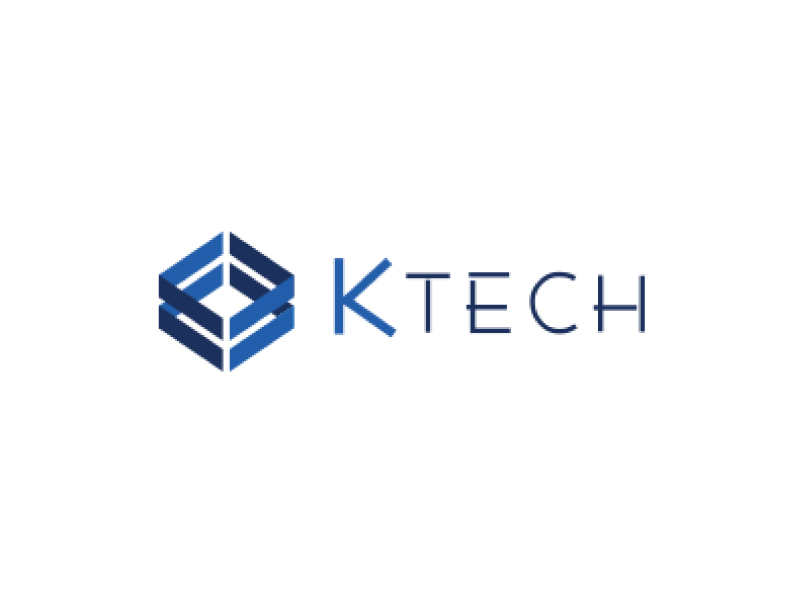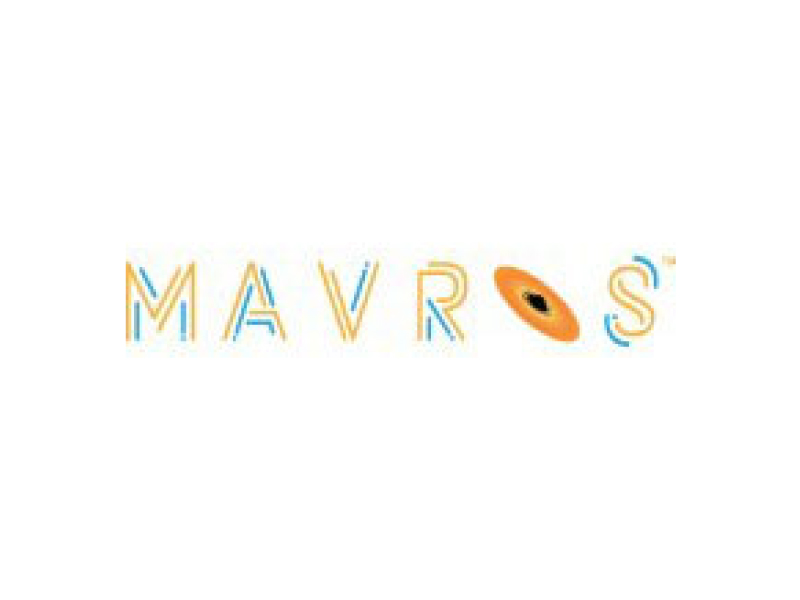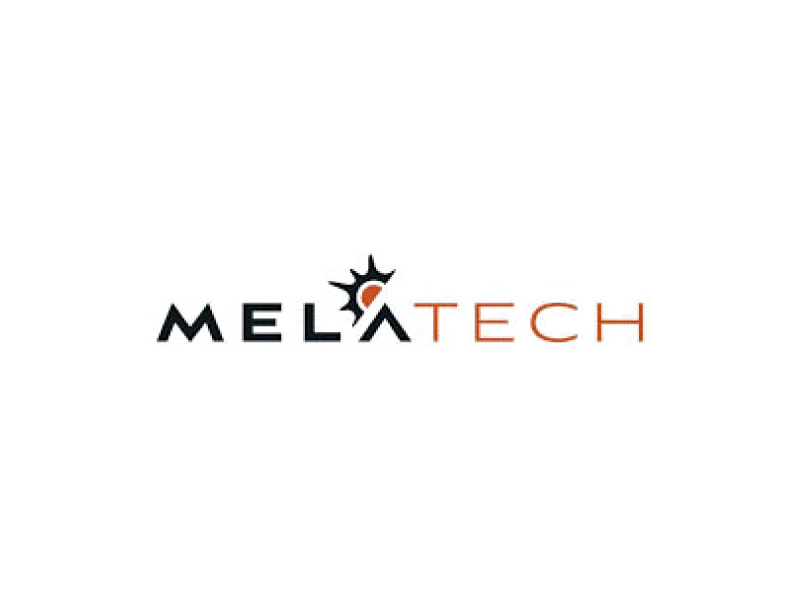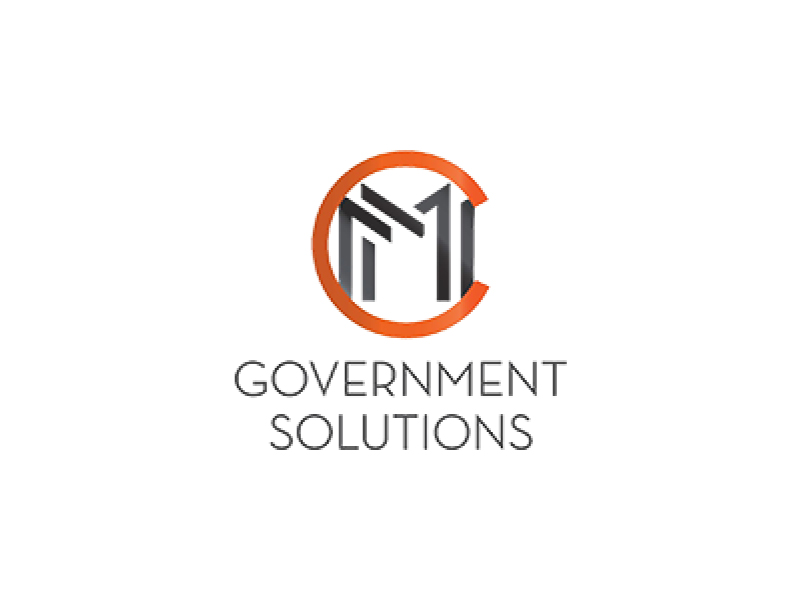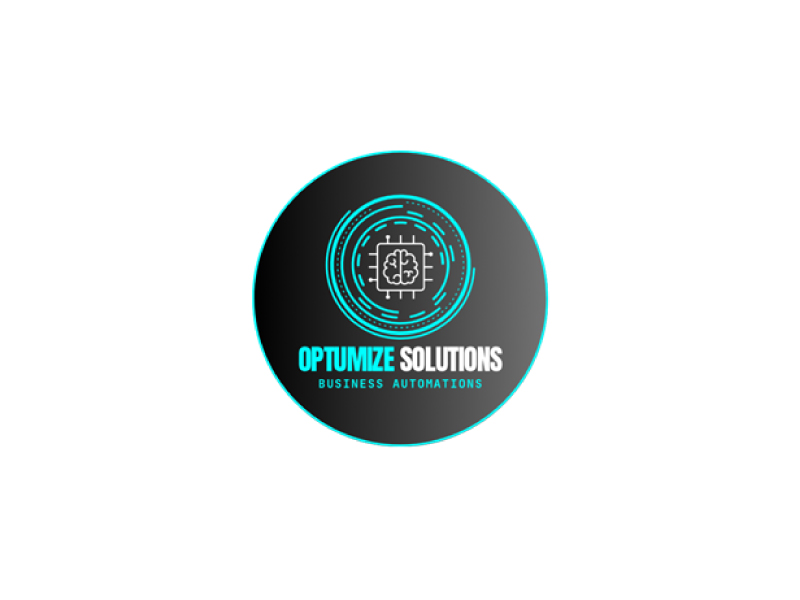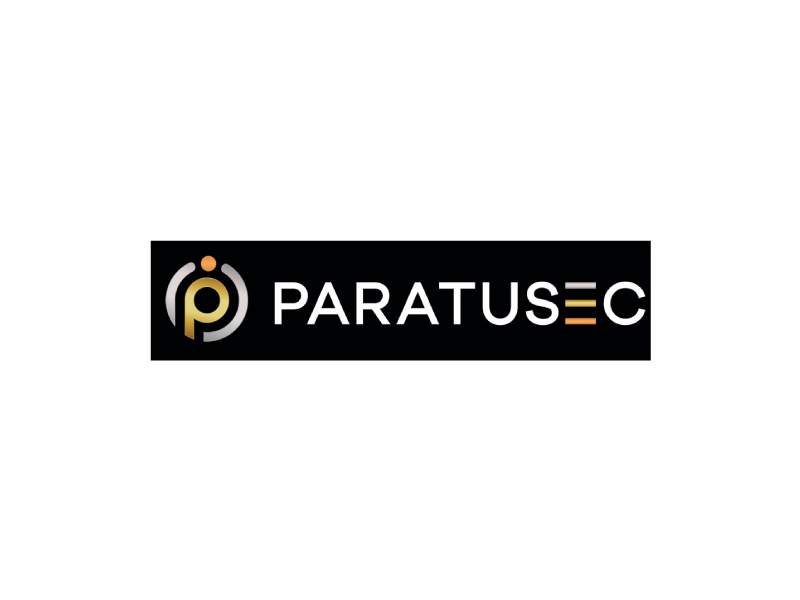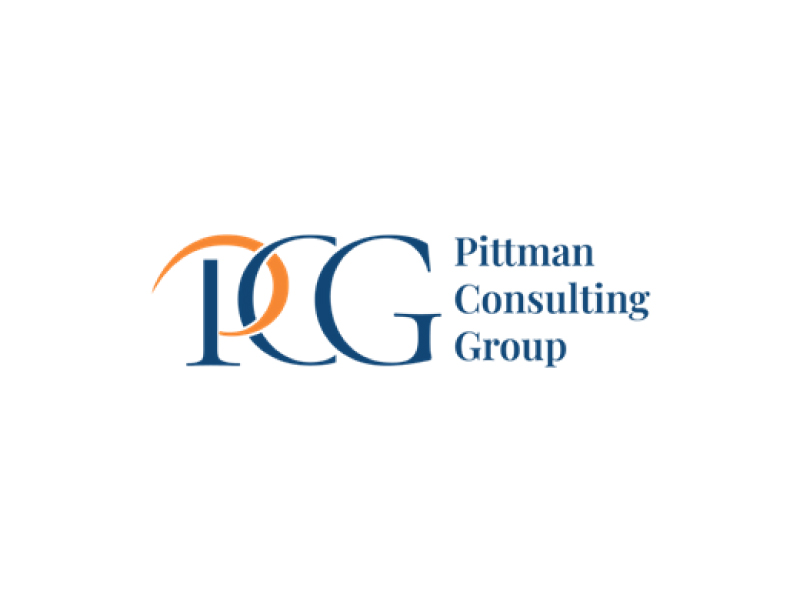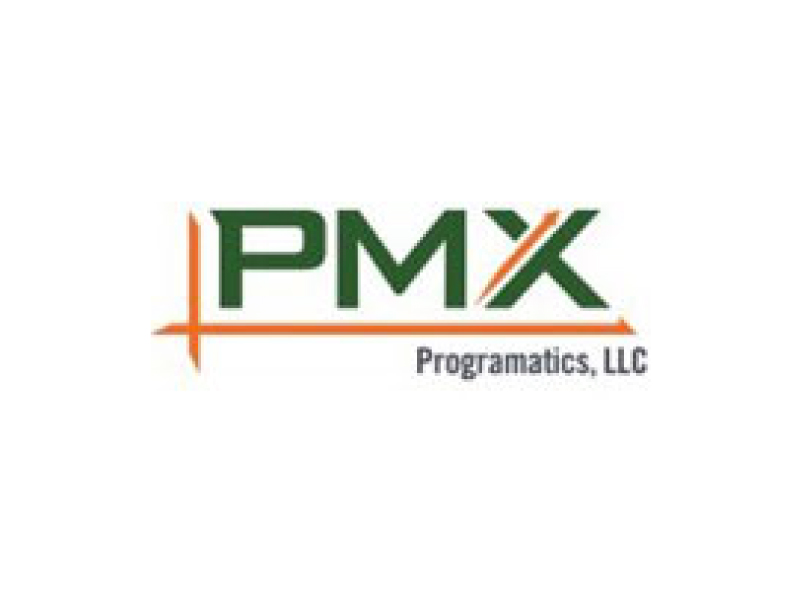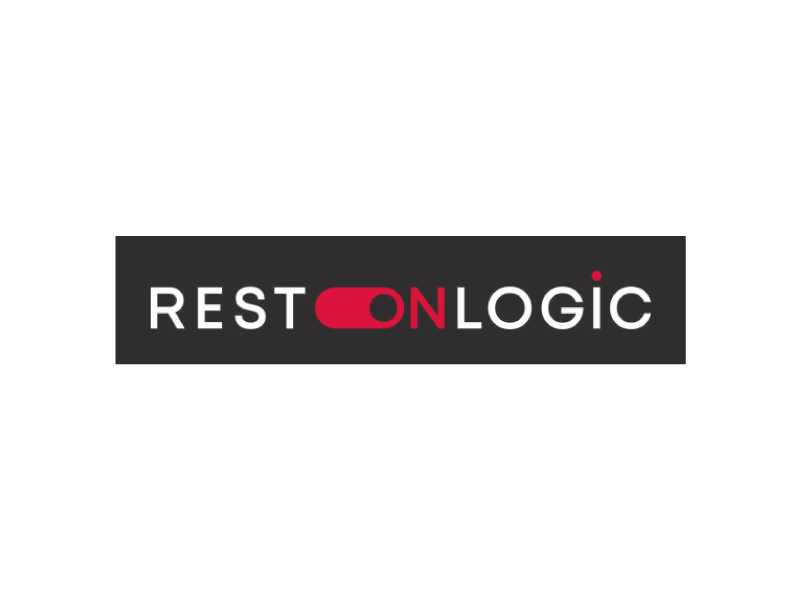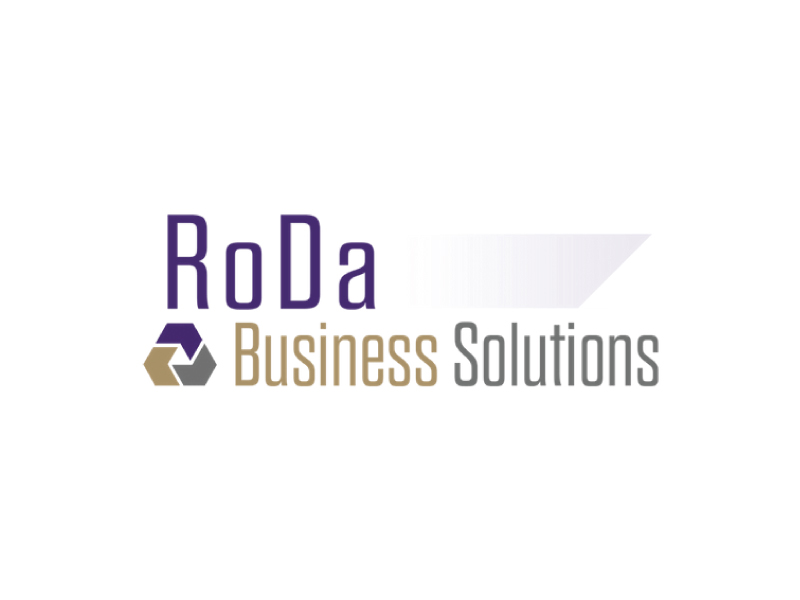BRIDGE Proposal Lab
BRIDGE Proposal Webinar Recorded September 11, 2025.
The BRIDGE Proposal Lab is a U.S. Government–funded, intensive business development accelerator program designed to equip Socially and Economically Disadvantaged Individuals (SEDI) entrepreneurs and Very Small Businesses (VSB) under 10 employees with the skills, resources, assistance, and mentorship necessary to compete and win proposals in today’s increasingly consolidated federal funding environment.
It is open for application to government contractors registered to do business in Maryland, DC, Virginia, and Delaware.
Offered through Maryland TEDCO under contract with the U.S. Department of Treasury and delivered by OST Global Solutions, this cohort-based initiative blends U.S. Department of Labor–certified Apprenticeship instruction with hands-on pipeline, capture, and proposal development. It provides access to AI-driven tools, and a robust alumni network. Participants will undergo 310 hours of business development and proposal training, participate in live pursuit workshops aimed to win active opportunities, and receive tailored coaching, team-building support, and access to WinMoreBD.ai, OST’s proprietary generative AI platform.
With national award–winning methodology, OST’s track record of winning $28B in funded contracts, and proven impact—the BRIDGE Proposal Lab is a rigorous, business outcome–changing opportunity for business owners serious about securing government–funded contracts and grants, raising capital, and scaling your government contracting capabilities.
Applicant’s business must operate in either Maryland, DC, Virginia, or Delaware.
Application Process
You must register with TEDCO and apply to the BRIDGE Proposal Lab to be considered for the program.
The application is a two-step process. To be eligible, you will need to complete both of the forms linked below.
Step 1: Apply for the BRIDGE Proposal Lab
Once you have completed this application, you will still need to register for the program using the “Register Now” button. Please allow yourself time to fill out the application as it is a competitive process.
Step 2: Register with TEDCO
You must register with TEDCO and apply for the BRIDGE Proposal Lab to be considered for the program.
Our panel will review the applications and may conduct interviews or ask questions prior to accepting participants into the program.
Applicants may be placed on a waiting list; if that happens, you will receive license to our training. As you complete the training, you will have a chance to replace anyone in the Lab who doesn’t keep pace with the training course completions and/or doesn’t actively participate in the business development activities and contribute to the team proposal development.
Program Structure
This cohort-based accelerator includes:
In-Depth Training in Government Business Development (12 months)
310 hours of self-paced curriculum in government business development, capture, and proposal management in OST’s Learning Management System (LMS) with a dashboard to show every participant’s progress and completion metrics. Participants who complete the final exam will receive an optional U.S. Department of Labor Certificate. This comprehensive training builds repeatable skill base beyond a single Lab cycle.
Proposal On-the-Job Training (OJT) with Pipeline and Bid Support
6 months in duration – starts at Month 3 of the program and ends at Month 9: Live pipeline building, win theme engineering, cost volume coaching, and OST-staffed Red/Gold team reviews. This approach converts theory into award-ready submissions while cohorts are in session.
WinMoreBD.ai License
6 months in duration – starts at Month 3 of the program and ends at Month 9: The Lab will make pre-proposal and proposal preparation more efficient using an AI platform. The program covers the cost of this platform. The platform slashes the proposal development time by 80% while significantly increasing win probability and helping develop higher-quality proposals.
Alumni Networking (Month 2 onward)
We hold networking mixers, maintain a teaming bulletin board, and create durable peer-to-peer relationships that outlive the Lab, creating a small business force multiplier for your company.
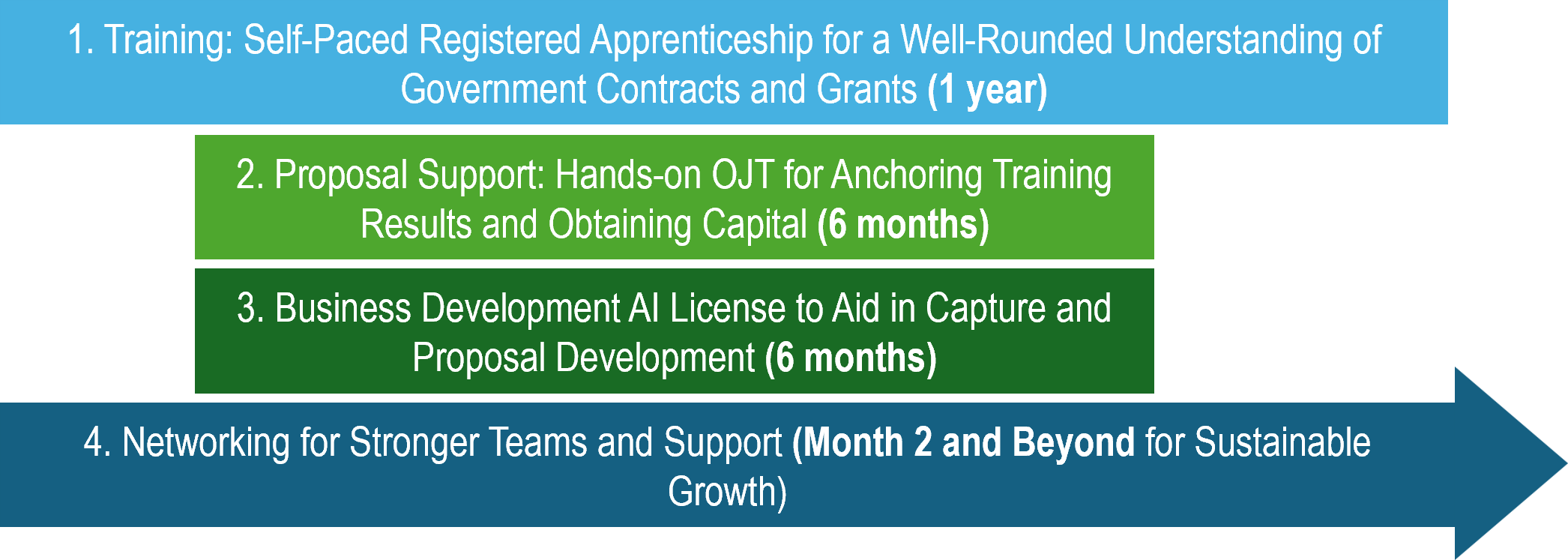
Figure 1: The BRIDGE Proposal Lab Includes Four Elements to Deliver Maximum Value to the BRIDGE Proposal Lab Participants and Result in Winning Contracts and Raising Capital.
The cohort will be broken out into specific verticals with a dedicated opportunities pipeline that are a fit for participants’ capabilities.
Live opportunity pursuit workshops will turn the learned theory into practice—win theme engineering, teaming outreach, cost guidance, outline development, and Pink/Red/Gold Team reviews that will walk bid teams to compliant and compelling submissions. Every company will receive a complementary license to our Gen-AI platform (WinMoreBD.ai). After 6 months of active bidding inside the Lab, participants will continue learning and bidding independently, while they network with each other—creating a durable consortium for mutual support and teaming long after the BRIDGE Proposal Lab ends.
The figure below shows greater detail of the program flow.
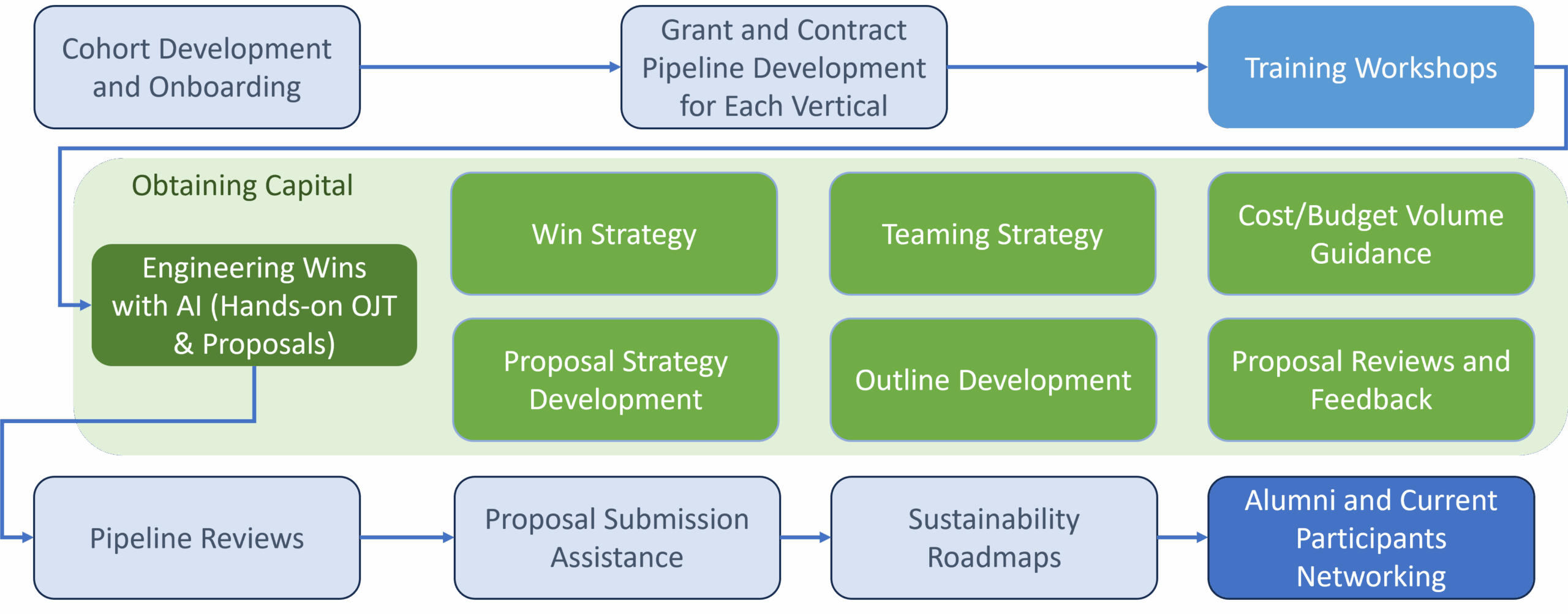
Figure 2: Our BRIDGE Proposal Lab is a Comprehensive Training and Hands-On Program to Strengthen SEDI and Very Small Businesses with Obtaining Capital and Sustaining Them Beyond This Program.
Each participant will receive at least $45,000 worth of support services and licenses in value, so please, take the time to prepare a thorough application.
Cost
This program is free to participating companies.
Key Dates
Cohort 1
– Application deadline: September 19, 2025
– Cohort Start Date: November 3rd, 2025
– Cohort End Date: September 1st, 2026
Cohort 2
– Application deadline: January 30, 2026
– Cohort Start Date: February 5, 2026
– Cohort End Date: January 3, 2027
Who is Eligible to Apply
Very Small Businesses (VSBs)
A VSB is generally defined as a business with fewer than 10 employees at the time it receives SSBCI support, including independent contractors and sole proprietors.
Socially and Economically Disadvantaged Individuals (SEDI)
A small business may qualify as a SEDI-owned business if it meets at least one of four criteria. These criteria involve diminished access to credit, residence in a CDFI Investment Area, future operation in a CDFI Investment Area, or current location in a CDFI Investment Area.
Vertical Overview
We are developing a strategic framework of industry verticals designed to unlock high-potential federal contracting opportunities. This initiative is rooted in a teaming-oriented approach that brings together complementary capabilities across targeted sectors. By focusing on areas with strong historical spending and continued demand—even in the face of recent DOGE budget reductions—we position ourselves and our partners for sustained growth.
Our strategy emphasizes small business participation, leveraging multiple set-aside programs such as SDVOSB and 8(a) to maximize competitiveness. Importantly, our approach is agency-agnostic; rather than tailoring to a single federal customer, we prioritize industry verticals where small businesses have consistently excelled and where future contracting activity is anticipated.
Cohort Verticals:

Information Technology (IT) Services

Professional Services (Management, Financial, and Business Services)

Health Services and Health IT


